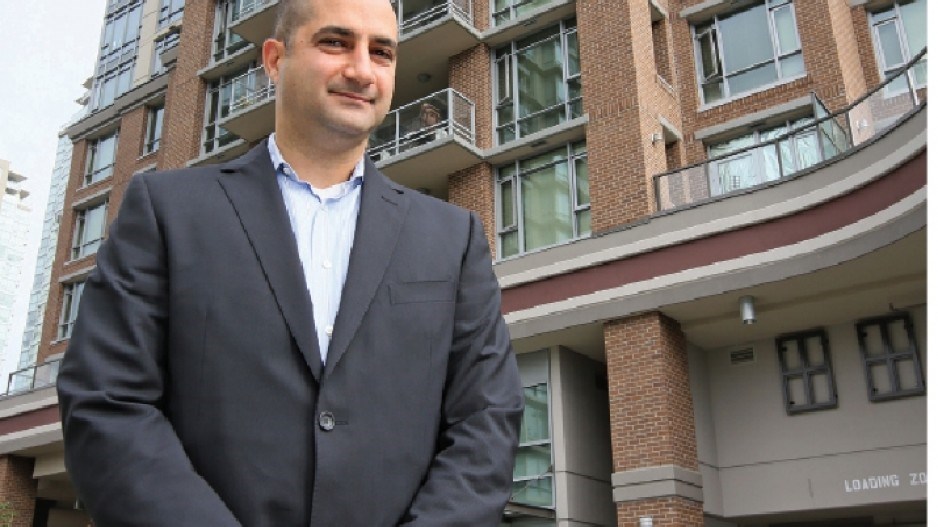The 42-storey MThree residential project being built by top-tier developer Cressy represents more than the tallest tower in Coquitlam.
MThree, the third in a series of towers at Cressy's Metropolitan complex in Coquitlam's town centre, is also indicative of an innovative civic bonus formula that has pumped millions of dollars into a Coquitlam transit plan.
Cressy was allowed maximum density on the site by paying the city a fee that will be used to help build the Lincoln transit station at Pinetree Way on the Evergreen Line, which is scheduled to start running in 2016.
The zoning density lifted the value of the Cressy site, helped create the residential mass the city is aiming for in the area and assured a new transit station within a short walk of Cressy's MThree site.
“We wrote a cheque for 50% of the land lift [value],” said Hani Lammam, Cressy's vice-president of development and acquisitions.
Coquitlam Mayor Richard Stewart said the density bonus payments are part of a transparent approach the city takes to development.
“Developers know upfront exactly what their costs are,” he said.
Recently, developers Onni and Polygon paid $1 million each to add space to residential towers in the area.
The bonus money is earmarked to help cover the $20 million cost of the extra station that was sketched in as an option when the $1.4 billion Evergreen extension was announced.
As well as residential developers, Pensionfund Realty Ltd., owner of Coquitlam Centre Mall, has kicked in funds in return for future density bonuses and donated part of the mall parking lot for the Lincoln station. Coquitlam has also received $7 million in federal government funding for the station as part of a P3 project with Pensionfund.
According to Stewart, the new station will cost the city very little while helping to create a pedestrian-friendly retail and residential district and generating taxes for the city.
He expects at least a dozen more highrises to be built in the area.
Judging from sales, Cressy and other homebuilders might have little argument.
MThree will have 319 condominiums, starting at $230,000 for a one-bedroom, and about 8,000 square feet of retail space.
“We like Coquitlam,” Lamman said, noting that Cressy is also active in Richmond and Vancouver. “The land is cheaper and the density is higher.”
Industrial
But it is in the industrial sector where Coquitlam faces its biggest challenge. Quickly running out of land as the Port Mann Bridge expansion and Highway 1 improvements near completion, the city is feeling the pressure.
Coquitlam recently chopped its industrial requirements from nine potential uses to three.
“Now you can use industrial land for just about anything,” Stewart said.
If you can find the land.
“Land is at a premium in Coquitlam with just one acre of industrial land for sale,” Avison Young found in a survey this spring, adding that there was also only one industrial building for sale in the city.
Coquitlam's total industrial land covers 834 acres, just 3% of the Metro Vancouver inventory.
“It would cost $30 a foot, or about $1.2 million to $1.4 million an acre, for industrial land in Coquitlam,” noted Rob Gritten, an industrial specialist with Avison Young, who said Coquitlam ranks as a premier industrial destination in Metro Vancouver.
Stewart suggested that older big box stores with large parking lots “may have to be dynamited” to make way for higher-density industrial.
Fraser Mills
The largest project in Coquitlam's historic industrial area leans much more toward housing and retail than warehouses.
When the Beedie Group completes the 89-acre Fraser Mills project, only 15 acres will remain industrial, less than what has been set aside for a park.
The giant project, now underway, includes up to 3,700 homes in 13 towers, 275,000 square feet of retail and restaurants and 72,500 square feet of amenities for nearly 8,000 residents.
It links historic Maillardville with the Fraser River waterfront.
Beedie is reportedly paying up to $12 million to the city as part of the development, including $5 million for affordable housing. The company is also donating about 20 acres for public parks and green space.
Being developed on what was once the largest sawmill in Canada, Fraser Mills perhaps best represents Coquitlam's future. The mayor said it's all part of sharing in the city's potential.
“This decade belongs to Coquitlam,” Stewart said, noting the city has been growing at 4% per year, “and we're ready to make the most of it.”




